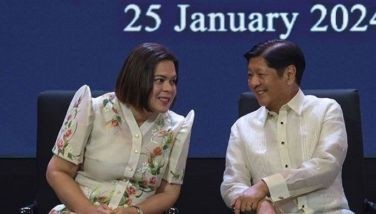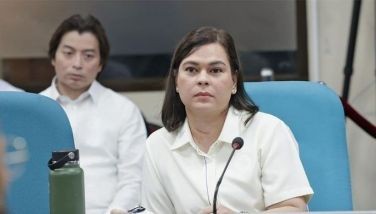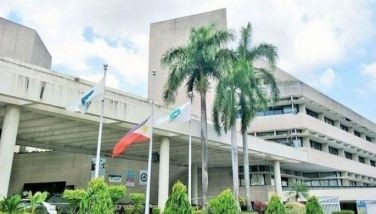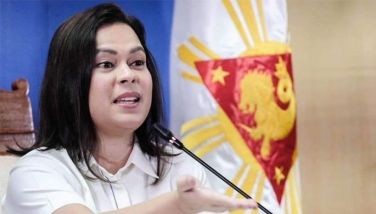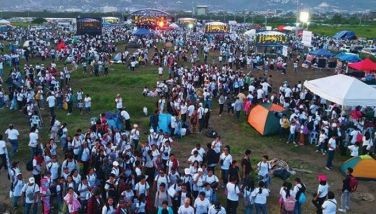PWDs call for sustainable options amid new 'alternative employment' program
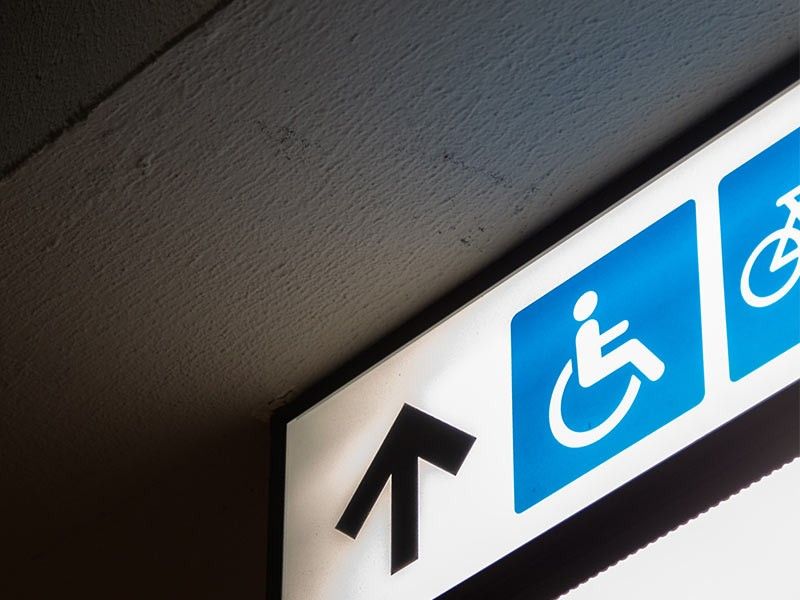
MANILA, Philippines — An advocacy group for persons-with-disability over the weekend welcomed companies with alternative employment programs for the disabled but called for more sustainable employment options.
This, as McDonald's Philippines recently signed agreements with the local government units of Caloocan City and Antipolo City throughout the past week.
With the partnership with the two LGUs, the service giant committed to employ both senior citizens and PWDs in their branches in both cities.
"Naniniwala kami sa kakayahan ng mga senior citizens and PWDs,” said Chona Torre, McDonald's Philippines Human Capital Group's Senior Vice President in a press statement.
'Positive contribution for inspiration'
"With their skills and commitment, we believe that they will positively contribute to our operations at mabigyan ng inspirasyon ang aming employees," Torre added.
In a follow-up online exchange with Philstar.com, a representative from McDonald's Philippines said that senior citizens and PWDs were to proceed to their city government to apply for the company's alternative workforce program in partnership with the LGU.
Qualified applicants of the program, they said, would be required to secure a "recommendation from the Public Employment Service Office (PESO) of the City of Antipolo and pass physical, medical, laboratory exams, and a permit certifying that they are fit to work."
McDonald's Philippines has yet to respond to a query on whether or not they would be publicizing job vacancies specifically for the disabled or the elderly.
Asked by Philstar.com what the process for employing disabled applicants was, McDonald's Philippines said that "Qualified PWDs would be individuals who are hearing impaired (subject to subsequent inclusion of other differently-abled individuals)." No clarification was given as to the other categories of disability, which are aplenty.
Once hired, the service giant said in their statement, PWDs and senior citizens would be assigned to "perform tasks such as being an order presenter, drink drawer, table manager and overall guest relations."
Organization for Pinoys with Disabilities Inc., or PWD Philippines President Arpee Lazaro told Philstar.com in a text exchange over the weekend that the program seemed to be "narrowing their list to deaf people."
What does the law say?
Republic Act 7277, commonly known as the Magna Carta for Disabled Persons or An Act Providing For The Rehabilitation, Self-Development And Self-Reliance Of Disabled Person And Their Integration Into The Mainstream Of Society And For Other Purposes, stipulates in Section 2(d) and later on in Section 32 that:
(d). The State also recognizes the role of the private sector in promoting the welfare of disabled persons and shall encourage partnership in programs that address their needs and concerns.
Sec 32. Discrimination on Employment No entity, whether public or private, shall discriminate against a qualified disabled person by reason of disability in regard to job application procedures, the hiring, promotion, or discharge of employees, employee compensation, job training, and other terms, conditions, and privileges of employment.
Categories of disabilities outlined in the law include psychosocial disability, disability due to chronic illness, learning disability, mental disability, visual disability, orthopedic disability and communication disability.
The law also says that "[l]imiting, segregating or classifying a disabled job applicant" and "[u]sing qualification standards, employment tests or other selection criteria that screen out or tend to screen out a disabled person" equate to discrimination.
For existing disabled workers, Labor Secretary Silvestre Bello III earlier issued Labor Advisory No. 14, series of 2018 which mandated that employers grant their qualified workers with disability the rights and privileges mandated by the Labor Code.
But for the disabled, especially in far-flung areas, these laws are nothing but pipe dreams and distant ideas despite the state supposedly recognizing them as their rights.
In an earlier phone call with Philstar.com, Association of Empowered PWDs Philippines, Incorporated President Daniel Evangelista said, “Mga disability laws namin, magaganda. Ang kulang is the execution at implementation. Hindi talaga ini-implement ng local executives natin. Walang ngipin ang mga laws natin para sa mga disabled.”
The Magna Carta for Disabled Persons also prescribes in Title 2, Chapter 1, Section 5:
Equal Opportunity for Employment: No disabled persons shall be denied access to opportunities for suitable employment, and that a qualified disabled employee shall be subject to the same terms and conditions of employment and the same compensation, privileges, benefits, fringe benefits, incentives or allowances as a qualified able-bodied person.
In a 2013 study by the Philippine Institute for Development Studies, which argues that "the quality of employment of PWDs still needs improvement," it was observed that "pessimism and lack of self-esteem" prevented PWDs from even trying to participate in "mainstream employment."
According to PIDS, over 50% of PWDs were underemployed, which they defined as "a working-aged (15-70) person who worked for pay or profit for at least an hour during the reference period, but was still looking for additional work."
The study also showed that only 57% of PWDs in the country are employed: a stark contrast to the 95.5% national employment rate as of December 2019.
'No judgment based on disability'
"Their use of the term differently-abled is already reflective of their lack of awareness and understanding," Lazaro added.
"Sana lang sustainable yung program hindi ningas kugon lang."
A style guide by Arizona State University's National Center on Disability and Journalism argues that the term, which came into prominence in the 1990s, is inappropriate and condescending owing to its tone of avoiding discussion on disability.
"[P]articularly when it comes to referring to individuals, "differently-abled" is problematic. As some advocates observe, we are all differently abled," the primer reads.
Although PWD Philippines said they welcomed the initiative, the group also said that the efforts should be genuine and long-term.
"PWD Philippines is always happy to see companies hiring PWDs," Lazaro said.
"Sustainable employment is the same [idea] for those with or without disabilities. We believe that job applicants should never be judged based on [his or her] disability. The sustainability lies with the applicant [and if] he or she has job skills that companies would want to hire."
“I am a PWD and I am a Filipino. My disability is not a liability,” Evangelista said.
“I have the right to enjoy all the rights enjoyed by ‘normal’ [people].”
- Latest
- Trending

















